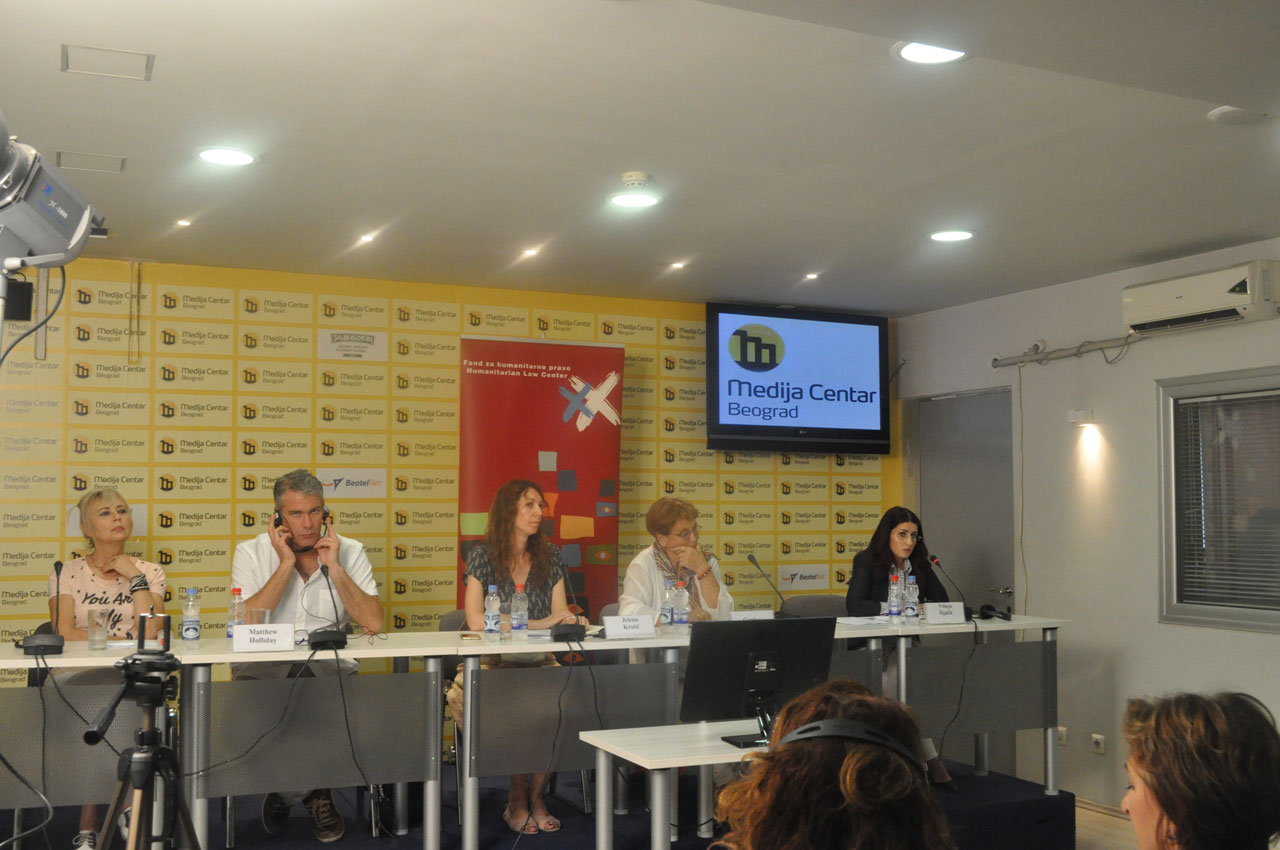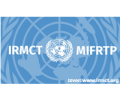HLC presented the Report on the Implementation of the National Strategy for War Crimes Prosecution and Policy Paper: Accounting for Missing Persons from the Armed Conflicts of the 1990s in the Former Yugoslavia

On Friday, July 27, 2018, the Humanitarian Law Center (HLC) presented its second Report on the Implementation of the National Strategy for War Crimes Prosecution. Opening the discussion on the report, Jelena Krstić from the HLC pointed to the fact that the problems that led to the adoption of the National Strategy for the Prosecution of War Crimes are still current: a small number of indictments, the lack of criteria for prioritising cases, a slowdown in trials, an inadequate witness and victims protection system, as well as inefficient regional cooperation. At the same time, the precondition Serbia needs to fulfill in order to join the European Union (EU) is to make visible progress in the prosecution of war crimes before domestic courts. Bearing in mind the current dynamics of the trials, Serbia risks losing a historical opportunity to prosecute as many war crimes perpetrators as possible. Namely, as time goes by, victims, witnesses and perpetrators are coming closer to the moment of death, and their memories are becoming more and more unstable; everyday socio-economic problems are taking precedence over concerns regarding events that occurred several decades ago, and the perspective of the future is becoming more and more important in relation to the need to solve the heritage of the past. Krstić concluded that for a more effective processing of war crimes the political determination of the institutions of Serbia is crucial, but that strong support and encouragement by the EU is also still needed.
The author of the Report, Višnja Šijačić, pointed out that, according to the findings of the HLC, two years after the adoption of the National Strategy there has been no progress in the prosecution of war crimes in Serbia: the implementation of the National Strategy has been extremely late; out of the 12 indictments that have been raised since the adoption of the Strategy, 11 are not the result of the initial work of the OWCP, but have been transferred from Bosnia and Herzegovina; war crimes trials continue to last unreasonably long; and there has been no progress in the area of the procedural rights of victims. To date, out of the 61 activities that the National Strategy foresees, 29 have not been implemented, while for only 12 activities can it be concluded that implementation has occurred. One of the most important activities of the National Strategy, which was implemented in the reporting period, is the adoption of the Prosecutorial Strategy for the Investigation and Prosecution of War Crimes, which was expected to establish priorities for the Office of the War Crimes Prosecutor (OWCP). However, according to Višnja Šijačić, from the text of the Prosecutorial Strategy it is not possible to clearly identify the criteria that will guide the OWCP when prioritising the cases in the following period.
On this occasion, the HLC presented a document entitled Policy Paper: Accounting for Missing Persons from the Armed Conflicts of the 1990s in the Former Yugoslavia , which provides an overview of the current results and the challenges that have arisen in the process of searching for the persons who disappeared during the armed conflicts on the territory of the former Yugoslavia, and gives recommendations for improving the search. The HLC’s recommendations for improving this process, presented by Šijačić, include the de-politicisation of the search for the missing, the effective implementation of the signed agreements and protocols between states, the promotion of regional cooperation, the opening of relevant archives, the improvement of cooperation between domestic institutions, the passing of the laws on missing persons, capacity building for institutions under whose jurisdiction the search for missing persons is being conducted, and the prioritisation of the identification of missing persons during the investigation and judicial proceedings.
For Gordana Djikanović, a journalist from Priština and a member of the Association of Families of Victims “Kosmetski stradalnici”, among the problems that make the search for the missing persons even more difficult are: a significant decrease in the number of exhumed and identified mortal remains of Serbs and other non-Albanians from Kosovo; incorrect identification of mortal remains; inadequate protection of eyewitnesses of crimes and other witnesses, which makes them less and less willing to testify; insufficient involvement of victims’ families in the process; as well as an interrupted communication between associations that gather together members of different communities, due to financial difficulties.
Djikanović proposes that the search for missing persons should be a topic within the EU-facilitated negotiations between Serbia and Kosovo, in order to establish a mechanism that will achieve the following: allow those families who have not yet provided blood for the identification of the mortal remains already found to do so; open the archives of all relevant institutions in Kosovo and Serbia, as well as make available documents owned by the International Criminal Tribunal for the former Yugoslavia; establish a system that will provide security and protection to eyewitnesses in order to testify about the events; actively engage family associations in the search for the missing persons, since they are the persons families trust the most; and help those same associations overcome the financial obstacles that prevent them from talking and cooperating with associations that gather Albanians from Kosovo.
Djikanović also pointed to the unsatisfactory social position of family members of missing persons, who are often living on the edge of existence. She considers it necessary for Serbia to adopt a law on missing persons and to amend the existing Law on Civilian Invalids of War which does not recognize the families of the missing persons as civilian victims of war.
The Head of the Western Balkans Programme for the International Commission on Missing Persons (ICMP), Matthew Holliday, presented the information that the ICMP has concluded agreements with Bosnia and Herzegovina, Kosovo, Montenegro, Croatia and Serbia on their participation in creating a single regional list of missing persons. All those countries have submitted to the ICMP their lists of missing persons, after which those lists are being systematised into a unique database that currently contains more than 12,000 names of persons for whom searches are still continuing.
According to Holliday, the Joint Declaration on Missing Persons, which was recently signed within the framework of the Berlin Process, represents a definite advance forward and an indication of a clear political will to resolve the fate of missing persons. However, as concrete steps are necessary to achieve this, the ICMP envisages the adoption of a plan for finding persons who are still missing. With this plan, the ICMP will endeavour to ensure that the Joint Declaration does not remain a dead letter.















